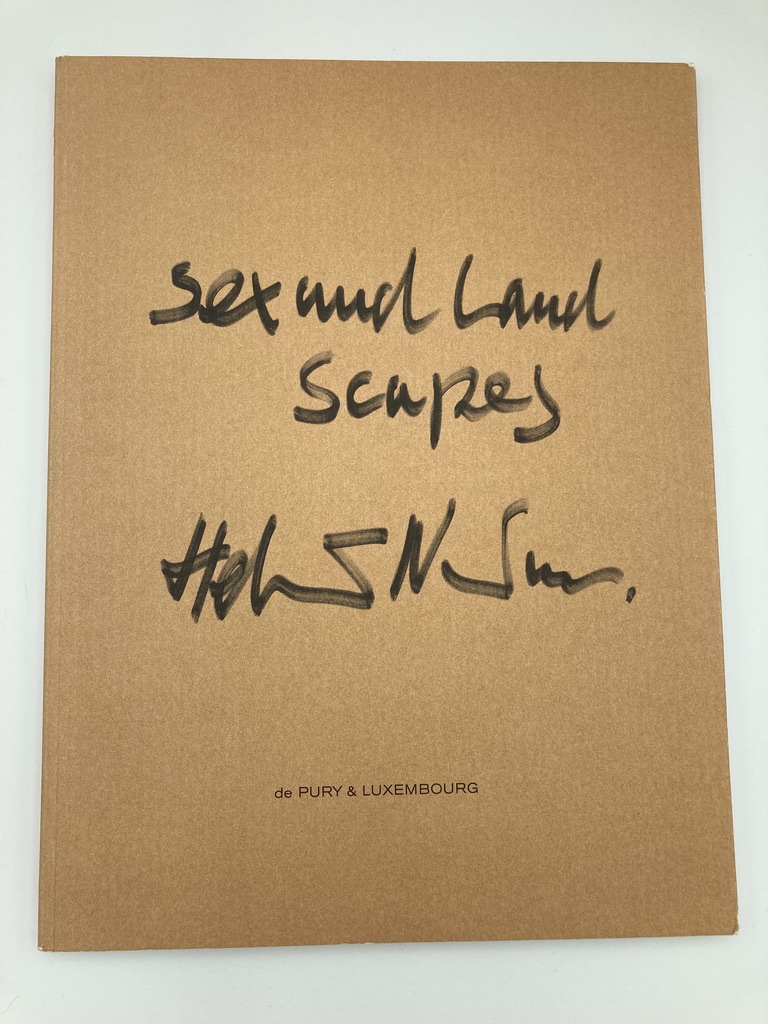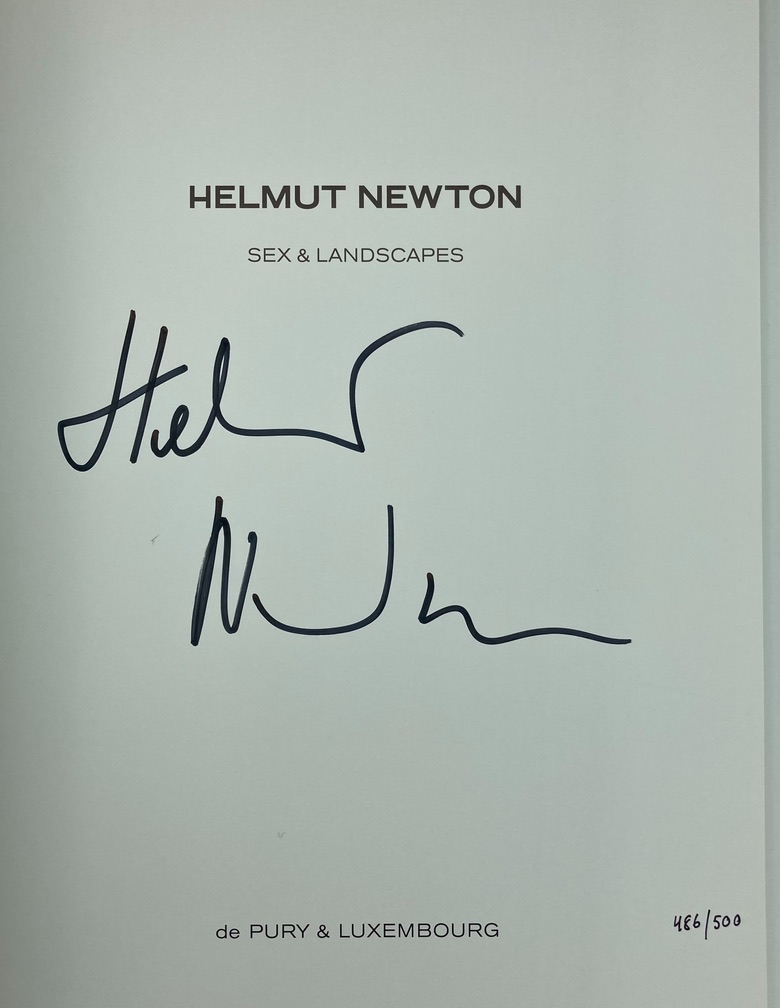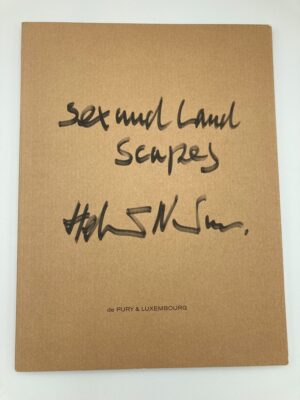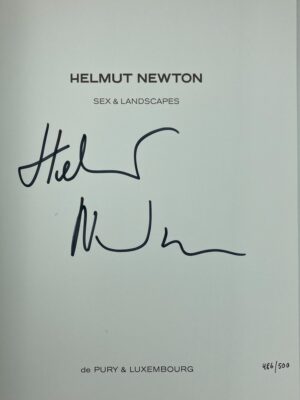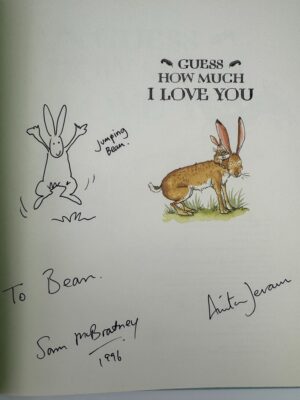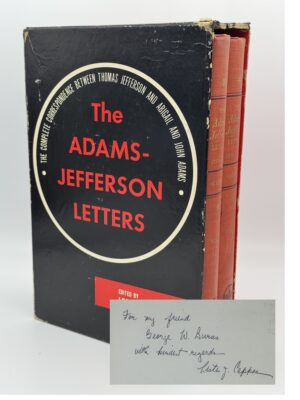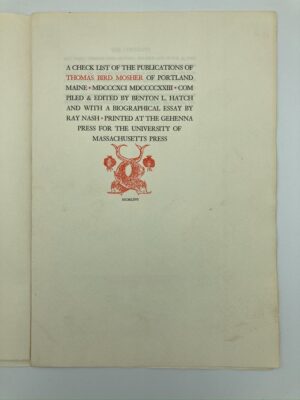
The Redbridge Book Co.
A Fictitious Bookstore in Delaware County
Membership(s): ABA
Newton, Helmut
Sex and Landscapes
$500.00
Newton, Helmut
Mary Boone de Pury & Luxembourg Catalog 2001.
Limited edition 486 / 500 copies signed by Newton.
A fine copy in wrappers.
Related products
-
McBratney, Sam & Jeram, Anita
Guess How Much I Love You
$1,500.00New York: Candlewick Press, 1996. Early reprint. Inscribed to “Bean”, signed and dated by author McBratney, signed by illustrator Jeram and with an original drawing by her titled “Jumping Bean”. A publishing phenomenon from the start, as of its 25th anniversary in 2019, the book had sold more than 43 million copies worldwide in 57 languages. A near fine copy in like dust wrapper. Signed copies are scarce indeed and especially desirable with the original drawing. less
moreOffered for Sale by: The Accidental Bookseller -
Capon. Lester J. (editor)
The Adams-Jefferson Letters: The Complete Correspondence between Thomas Jefferson and Abigail and John Adams
$250.00University of North Carolina Press: Chapel Hill, 1959. Two volumes. Complete correspondence between founding fathers John Adams and Thomas Jefferson. Includes the correspondence between Abigail Adams and Jefferson. Inscribed by editor Lester J. Capon. Spines lightly sunned otherwise fine. Slipcase rubbed at extremities with a few tape repairs. No dust wrappers as issued. The correspondence between John Adams and Thomas Jefferson spanned half a century and embraced government, philosophy, religion, quotidiana, and family griefs and joys. First meeting as delegates to the Continental Congress in 1775, they initiated correspondence in 1777, negotiated jointly as ministers in Europe in the 1780s, and served the early Republic–each, ultimately, in its highest office. At Jefferson’s defeat of Adams for the presidency in 1800, they became estranged, and the correspondence lapses from 1801 to 1812, then is renewed until the death of both in 1826, fifty years to the day after the Declaration of Independence. One of the monuments of American scholarship and, to quote C. Vann Woodward, ‘a major treasure of national literature.’ less
moreOffered for Sale by: Founding Lines -
Ishiguro, Kazuo
The Remains of the Day
$3,500.00Faber & Faber: London, 1989. First Edition. Lovely copy of this Booker Prize winning novel, the third from future Nobel Prize for Literature winner, basis for movie of same name starring Anthony Hopkins and Emma Thompson. Boldly signed by the author to title page. Accompanied by a bookmark promoting upcoming Booker Prize announcement, also signed by Ishiguro. Author’s signature has changed over time, and this example as well as the bookmark appear to be contemporaneous with the novel’s publication. Very scarce and desirable thus. A fine copy in fine dust wrapper. less
moreOffered for Sale by: The Accidental Bookseller -
Baskin, Leonard. Hatch, Benton L (comp.)
A Checklist of the Publications of Thomas Bird Mosher of Portland Maine: MDCCCXCI-MDCCCCXXIII
$275.00Northampton, MA: The Gehenna Press, 1966. Limited edition, one of 500 Copies, printed on Fabriano Paper in Monotype Van Dijck. Illustrated with 19 Mounted Letter Press Facsimiles of Title pages in Red and Black on Paper closely Simulating those used by Mosher. This is the printer’s copy, inscribed by Baskin and presented to Stanley Clifford “with the affection of” Leonard Baskin, dated 1967. Clifford started as a hand leather bookbinder at Bennett Book Studio in Manhattan. He came to be respected as one of the finest craftsmen practicing this trade, a reputation that allowed work to follow him to Deer Isle, ME where he and fellow islander Leonard Baskin became close friends, attracted by a mutual interest in the book arts. Ironically, an unbound copy in 20 signatures. Some staining to rear page and signature spines. less
moreOffered for Sale by: The Accidental Bookseller

 USD
USD GBP
GBP EUR
EUR CAD
CAD AUD
AUD ZAR
ZAR